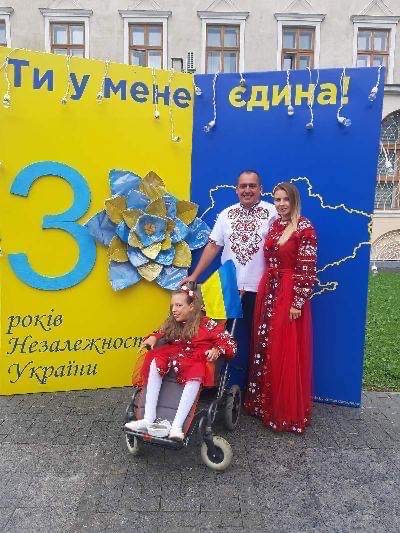
Dianka and her parents in Ukraine at an Independence Day celebration before the war.
Like all of her fellow Ukrainians, Nadia Tsyukh’s life was suddenly enveloped in fear and uncertainty when Russia invaded her homeland last February.
Nadia, her husband, Vasyl, and daughter Dianka, lived in Drohobych, a city near Lviv in northern Ukraine. As they followed daily news of the bombings, war atrocities, and disruption of daily life, Nadia and Vasyl had a paramount personal concern.
Dianka has health complications relating to her premature birth at 32 weeks. Weighing less than 3 pounds at birth, she was hospitalized for 3 months, including 40 days in intensive care. Around her first birthday, Dianka was diagnosed with cerebral palsy. She had two surgeries and participated in ongoing treatment, such as physical, occupational and speech therapy, massage therapy, acupuncture, aquatic therapy, and art and equine therapy.
“To this day, we struggle with this serious illness,” said Nadia. “I thank God that I have a daughter and all these problems are not an obstacle for me. As a mother, I dedicate my life to my child.”
Dianka was scheduled to have surgery for severe scoliosis on Feb. 28, but the Russian invasion began days earlier.
“This was a terrible event,” said Nadia. “It was very scary and many innocent children and people died. Many people were forced to leave their homes.”
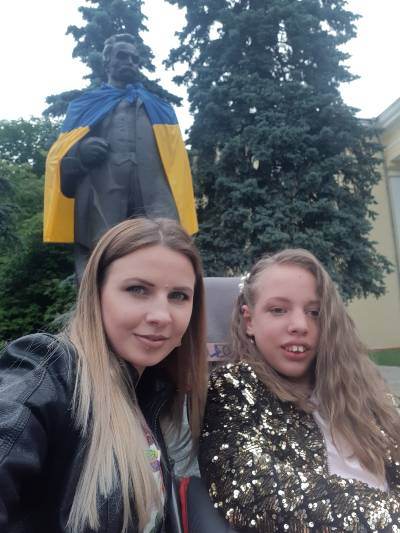
Nadia and Dianka in Drohobych.
Nadia said that while bombs did not come as often in Western Ukraine, the uncertainty still made life difficult. Nadia and Dianka volunteered to cook and deliver meals to soldiers, weave camouflage nets, and participated in charity festivals where money was raised for the war effort. They also went to the Polish border to help people fleeing the war and sort humanitarian aid for refugees.
“I wanted to be useful for people who need it,” said Nadia.
But after about four months, Nadia and Vasyl decided they should accept the opportunity for their family to move to the United States and live near her brother, Andriy, and his family in Strongsville, Ohio.
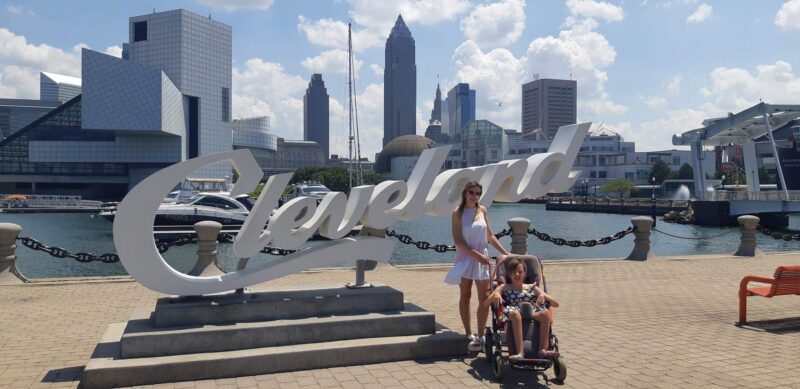
Nadia and Dianka explored Cleveland sights after their arrival last summer.
“Shelling had begun all over Ukraine and it was very important for me to get Dianka the surgery she needed,” said Nadia. “I understood that this would not be possible in the near future in Ukraine.”
The family was able to enter the United States through the Uniting for Ukraine (U4U) program, which allows a family member already in the U.S. to sponsor relatives interested in fleeing war-torn Ukraine for two years.
Dianka is now in the 7th grade in Strongsville City Schools and enjoys her studies and teachers, using a translating app on her phone. Vasyl, a truck driver in Ukraine, is awaiting permission to work in the United States.
“Dianka also misses Ukrainian school very much but she is able to continue studies in her native language online,” said Nadia.
Both mother and daughter love to sing and have beautiful voices. They post videos of their music on social media – songs about their love for their homeland, patriotic songs, and traditional holiday music.
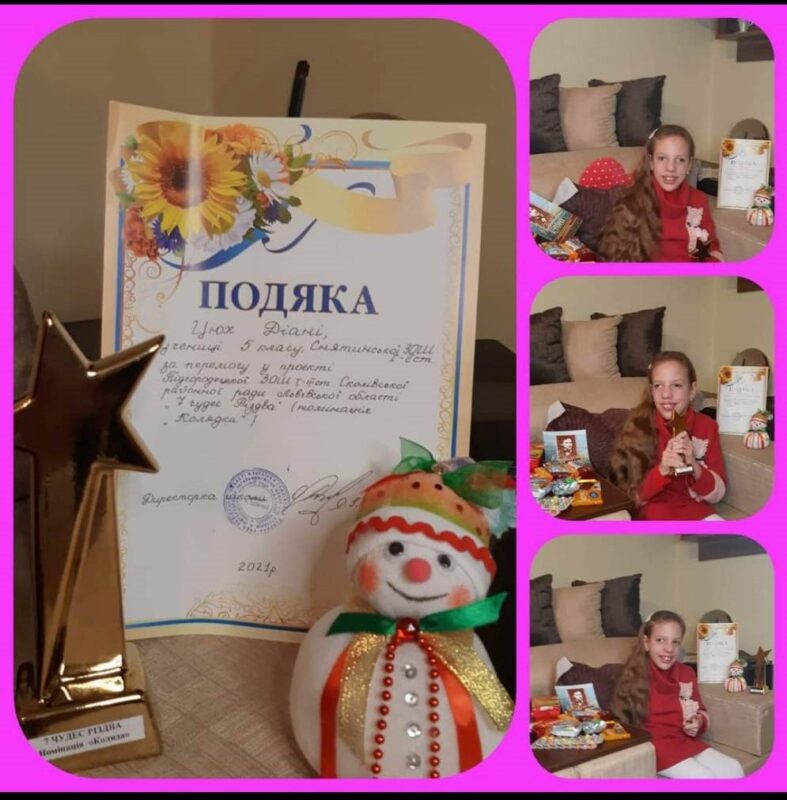
Dianka has received honors for her singing, and received an award from the mayor of her city for reciting a poem by Ukrainian poet Lesya Ukrainka.
“It was difficult and scary for us to dare to go to a country where we have never been, but war in Ukraine is much scarier,” said Nadia. “We have a child with special needs. All bomb shelters near us had stairs and, of course, were cold and damp. There may be alarms for several hours per day. It was difficult to go down there with a wheelchair and sit for so long. Thank God that I have a brother who helped us leave and sponsor us through the U4U program.”
When they arrived in Northeast Ohio, the family did not have the money for Dianka’s surgery or health insurance.
Dr. Todd Ritzman, chair of the Department of Orthopedics at Akron Children’s, learned of the family’s plight through Spine Hope, a nonprofit organization with which he has been involved on mission trips. He had his first appointment with Dianka in August and agreed to perform the surgery. Akron Children’s has helped the family secure health insurance, and Dianka is now covered by Medicaid.
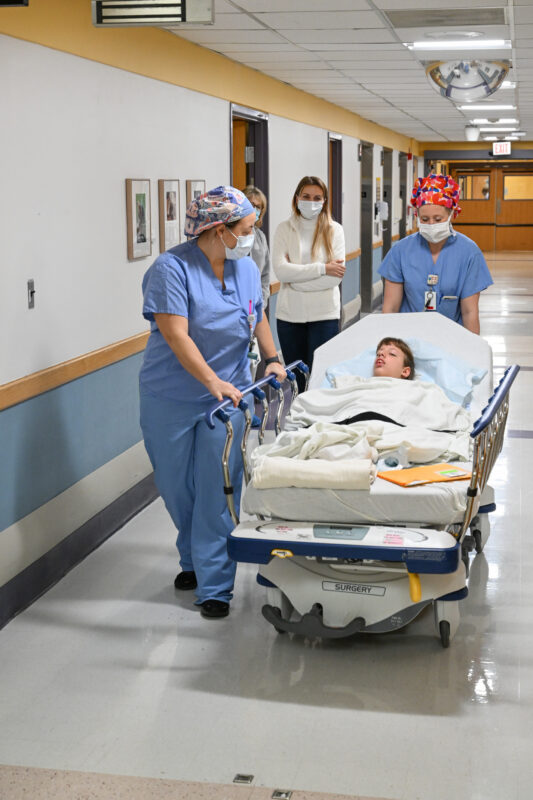
Dianka, in good hands, on the way to surgery.
Dr. Ritzman, joined by pediatric orthopedic surgeon Dr. Lorena Floccari and pediatric plastic and reconstructive surgeon Dr. Ashish Francis performed the 9-hour surgery on Dianka on Jan. 5, just days before the family and millions of others would celebrate Eastern Orthodox Christmas.
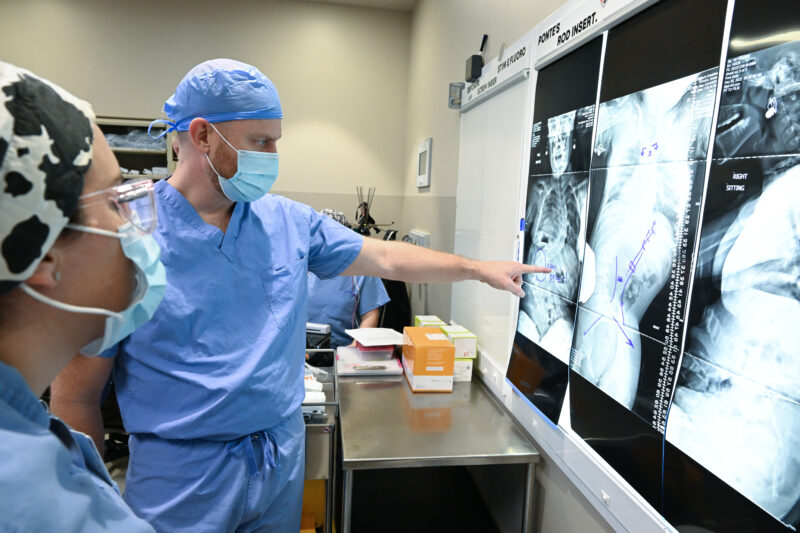
In the OR, Dr. Todd Ritzman reviews images of Dianka’s spine.
Dianka had 135-degree curve in her spine that was impacting her posture and made it uncomfortable for her to sit in her wheelchair. To put it in perspective, Dr. Ritzman said orthopedic surgeons generally start considering surgery when curves are at 50 degrees.
The surgeons implanted rods and screws to not only lessen the curve but decrease the risk of further curve progression. Another concern: Further progression of the spinal curve would begin to impact her breathing.
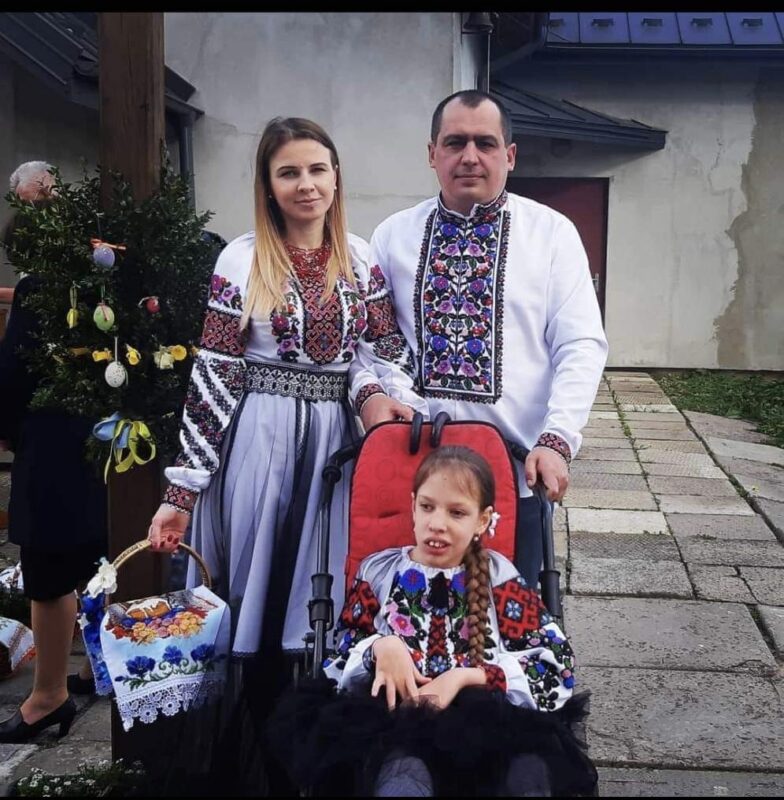
Dianka’s family celebrating Easter in Ukraine.
Dianka was discharged from the hospital on Jan. 12, just in time to celebrate her 13th birthday at home.
“I am in awe of this doctor,” said Nadia, referring to Dr. Ritzman. “He went out of his way to help us, even before we had health insurance. We thank the whole team for helping us. I have no words to express my happiness and hope that Dianka’s back will no longer hurt, that she will be able to sit longer, and God willing, will get back on her feet. This is my biggest dream for my daughter to be healthy and happy.”
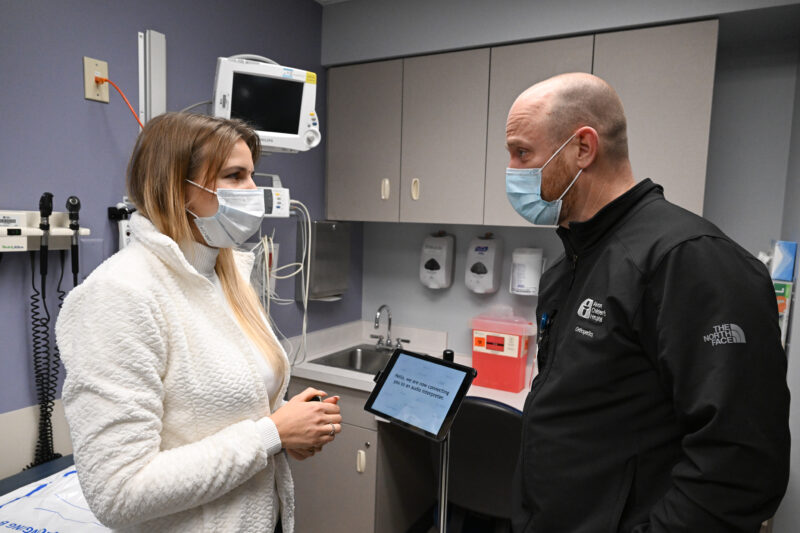
Nadia speaks and understands English very well but an iPad translating app is used to ensure the exchange of accurate medical information between her and Dr. Ritzman.
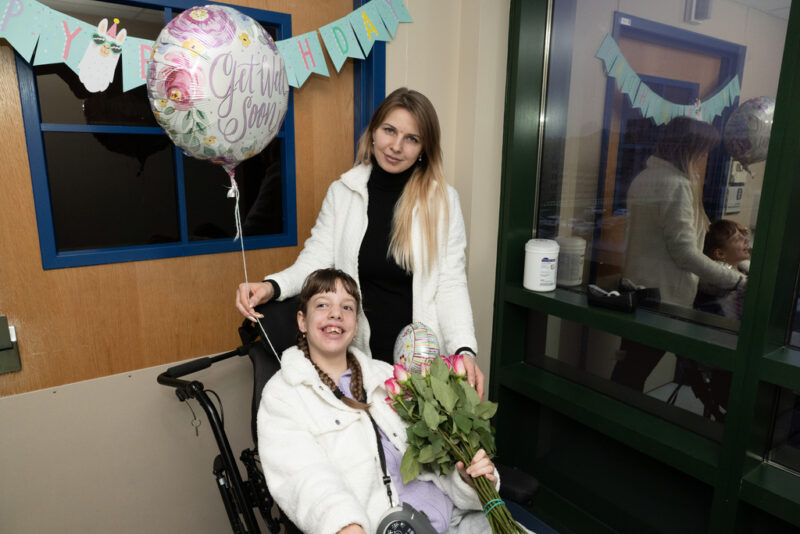
Dianka was discharged from the hospital on Jan. 12, just in time to celebrate her 13th birthday at home. She received a nice send-off!










